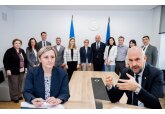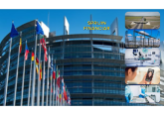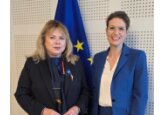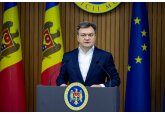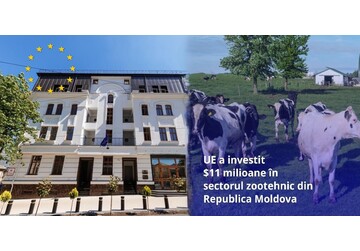
The European Union has invested more than $11 million in the modernization of farms and animal care in Moldova
The EU Permanent Delegation in Moldova reported this, noting that, in particular, these investments in the modernization of farms and animal welfare are meant to boost the development of the Moldovan livestock sector and were made with the technical support of the UN Industrial Development Project (UNIDO), financed by the European Union. The assistance provided will help Moldovan farmers to comply with EU quality standards, become more competitive and adopt sustainable development models. Specifically, in October-November 2024, more than 50 livestock farm owners and others interested in business development in the dairy sector, including students, were trained on EU environmental requirements and animal welfare standards for dairy farms. More than 20 farms were assessed and consulted by experts from the EU-UNIDO project “Improving the standards compliance through increased national capacities for residue monitoring”; they learned how to identify and strengthen their absorptive capacity for investment. Late last year, 6 agricultural enterprises from Ialoveni, Floresti, Falesti and Glodeni districts, as well as from ATU Gagauzia signed grant contracts under the AGGRI project, financed by the World Bank. The total budget of the investment projects - $11 million, of which about $5 million is grant financing for enterprises, is aimed at significant business activation. In addition, as a result of accurate assessment and capacity building of possible beneficiaries, the EU-UNIDO project has increased the chances of farms to grow and modernize. The value of the training activities was increased due to the fact that they took place under “fieldwork” conditions, i.e. on livestock and dairy farms. Five companies were granted the opportunity to participate in coaching sessions on dairy farm operations. Now, once financial resources have been allocated to them, the farmers are ready to make targeted investments. The beneficiary of the project, the owner of Gifis Farm, located in the north of Moldova, in Navirnet village, Falesti district, Marian Bîtiu noted that the quality of the product starts with the health of the animals. “There are 180 animals at Gifis Farm, and all the resources received through the AGGRI grant will be invested in the improvement of animal housing conditions: a modern ventilation system, a modern manure removal system, including new pumps and a scraper. We also purchased mats for resting animals and rubber flooring, which we installed in the walking areas to prevent animals from slipping and to significantly reduce the number of injuries to animals,” he said. In addition, as a result of the investment project, it will be possible to automate operations related to cattle housing and milk production. This will be achieved through the purchase of an automated feed dispenser for calves, a robotic system for mixing and distributing forage, and robotic milking systems. The entrepreneur highlighted the robotic feed distribution system and the breakthrough software integrated with the milking robot. “This is a technology that is unique in our country. The robotic milking system will make it possible to monitor the health of the animal population in real time, prevent diseases and, as a result, improve the health and welfare of the animals,” Marian Bîtiu explained. He also noted that the sustainability of his company has been improved by reducing production and processing costs through the use of highly efficient and energy-saving equipment purchased in the EU and equipped with the latest generation technologies. In addition, a fleet of solar panels will be installed at Gifis Farm. According to Dona Scola, National Coordinator of UNIDO's project “Improving the standards compliance through increased national capacities for residue monitoring”, supporting the capacity of small and medium-sized enterprises in Moldova that are making efforts to meet European quality standards involves not only developing their capabilities, but also facilitating access to much-needed resources for business growth and development. “We are very pleased that we have not only provided training events and individual counseling, but we have also been able to help the authorities identify those livestock enterprises that are ready to move to a new stage of development, to invest consciously in animal and environmental health,” she said. The livestock sector grant program is implemented under the Agricultural Governance, Growth and Resilience Investment (AGGRI) project, funded by the World Bank and implemented by the Agency for Intervention and Payments in Agriculture. Funds are earmarked for farm modernization, with special emphasis on improving animal welfare and environmental protection. In turn, the UNIDO team provided assistance to farmers, small and medium-sized producers in the livestock sector to strengthen their ability to meet EU environmental and animal welfare standards so that they can benefit from grants allocated through the AGGRI project. // 17.03.2025 - InfoMarket.


